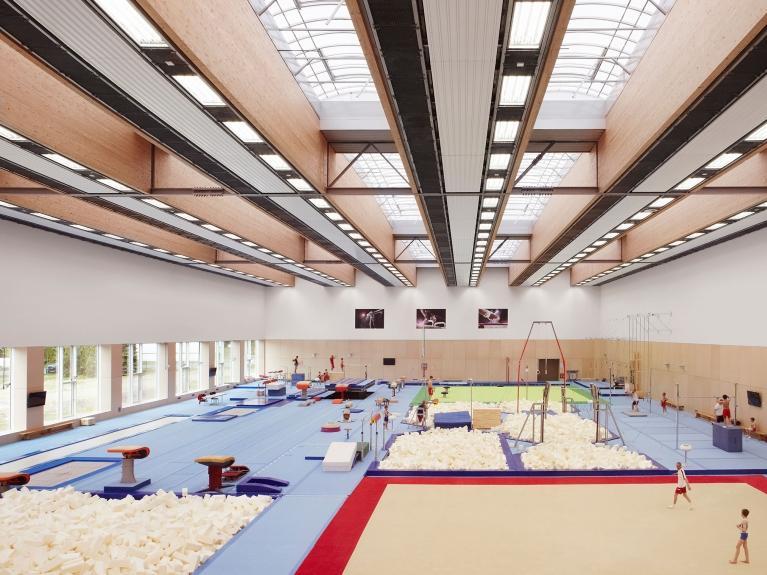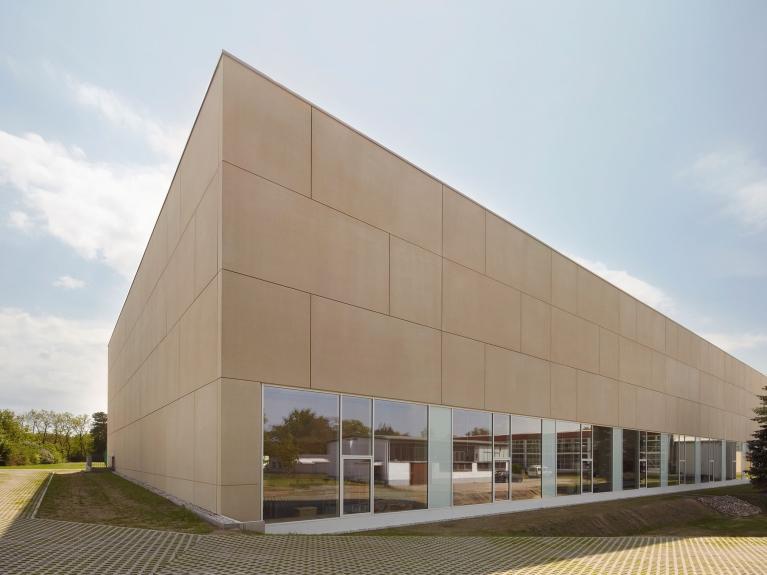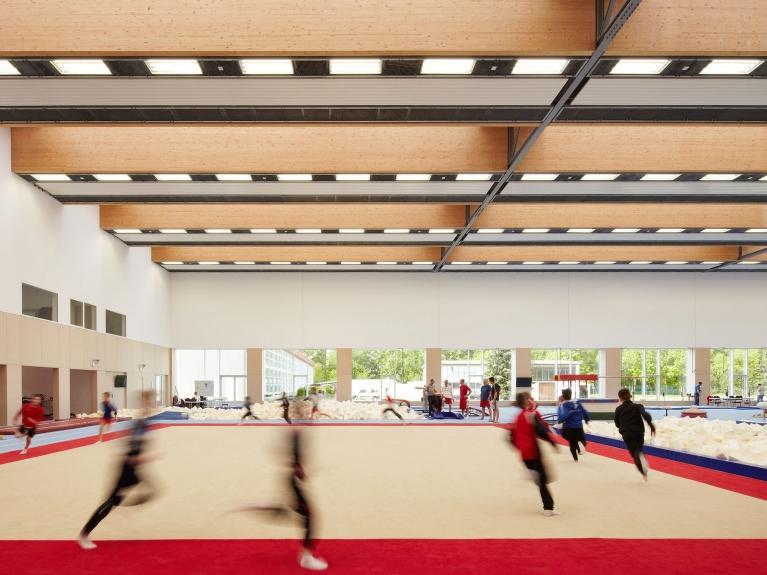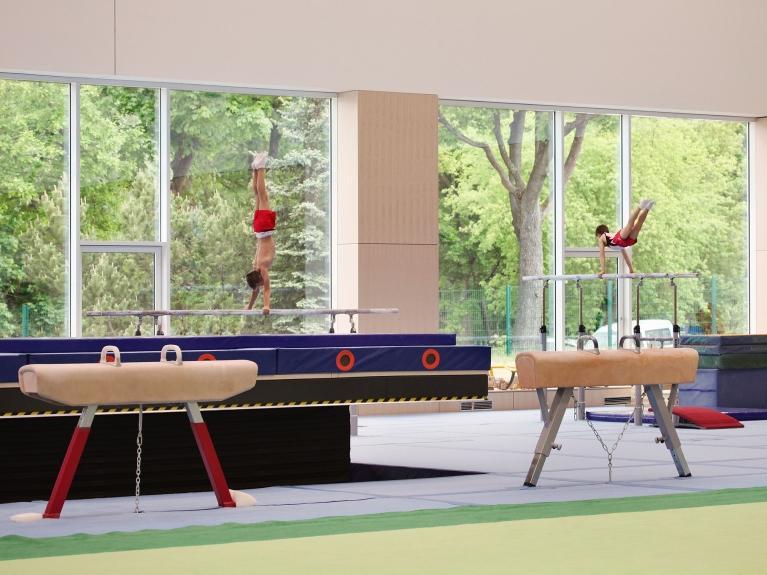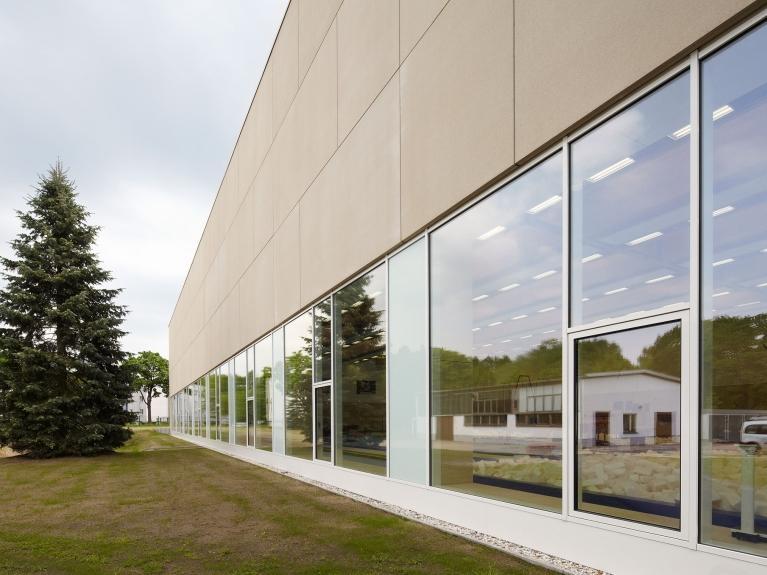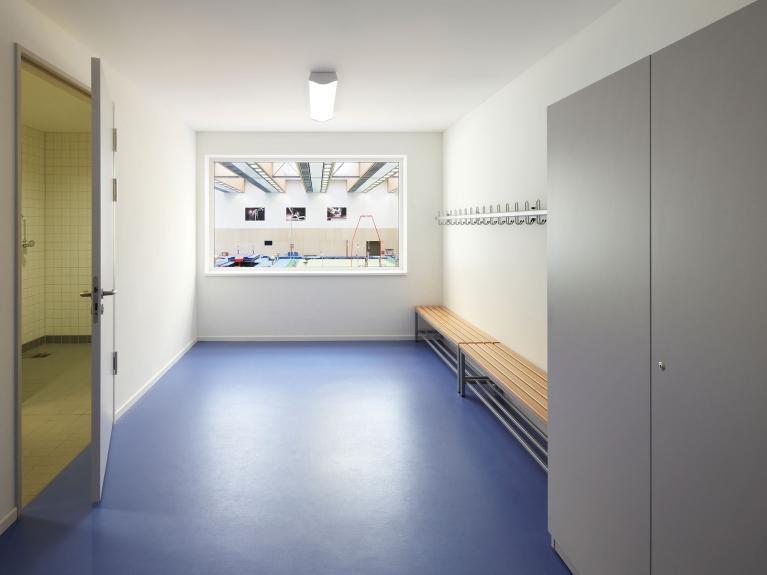Kienbaum – Olympic and Paralympic Training Center, Grünheide
Germany's top athletes will train in a climate-positive environment in the future.
The Kienbaum Olympic and Paralympic Training Center in the municipality of Grünheide in Brandenburg, about 35 km east of Berlin, is unique in Germany. Here, far away from the hustle and bustle of everyday life, top athletes can prepare for the highlights and challenges of the season with complex training facilities for a wide range of sports. More than 20 sports, seminar, accommodation, catering and administrative buildings, which are supplied with heat by two central heating systems, are in a park-like setting around the Liebenberger See.
Climate – positive operation
We have carried out a refurbishment study on climate neutrality for the performance center, which is unique in Germany. By 2045, Germany - and therefore also the building sector – is to become climate-neutral. The pressure to act is now great, but the scope for implementation is small. This is where our dedicated MorgenGrün team came into play: In addition to a comprehensive analysis of the current energy supply concept, we examined variants for sustainable heat and power supply as part of the study.
In a first step, the 20 or so existing buildings will be supplied via an efficient local heating network with combined heat and power plants and gas boilers. As a result of our study, we recommended a future heat supply via heat pumps with a total output of around 1.8 megawatts with groundwater utilisation – an intelligent solution that makes an important contribution to decarbonisation. The heat pump is a key component for a resource-saving heat supply. The concept is complemented by a photovoltaic system with more than two megawatts peak (MWp) in the final expansion stage.
With these components, climate-positive operation will be achieved in the future – and around 1,500 tons of CO2 can be saved each year.
Avoiding overcapacity, setting new standards
The inventory analysis was challenging. In some cases, there were large gaps in the data on the property, which is not uncommon for existing buildings. The result was more interesting for that: After we were able to compensate for the missing information from planning documents, we evaluated and analysed the measurement data – with the result that the heat generators in both boiler houses had significant overcapacities (55-76 %).
We are particularly proud that the first package of measures will be implemented immediately after the study: Our Berlin colleagues at ZWP Ingenieur-AG are planning the photovoltaic systems and thus actively implementing climate neutrality.
The Kienbaum Performance Center shows how energy-efficient sustainability can also be achieved in existing buildings – at a level that sets standards.
Images: © Nina Straßgütl
Overview
Client and building owner
Federal Performance Center Kienbaum e. V.
Time frame
2022 to 2023
Services
Thermal insulation and energy balancing, climate-neutral energy concept
Property area
approx. 50 ha
Saved CO2 emission
1,500 t/a
